WORSHIP OF KING HUNG
Based on sources of documents, the worship of Hung Kings originated from the worship of natural gods and mountain gods. According to legend, the Upper Temple on Nghia Linh Mountain (now Viet Tri City, Phu Tho Province ) is where the Hung Kings used to go to perform rituals to worship heaven and earth, praying for favorable weather, prosperity and happiness for the people.
 |
| Leaders of Tien Giang province offer incense and pay tribute at the Hung King's altar on the occasion of the Hung King's death anniversary on March 10 (lunar calendar) in 2024. Photo: PHI CONG |
Until the end of the 19th century and before the restoration of the Upper Temple in 1917, the worship of deities here was still a mixture of worship of mountain gods, rice gods and worship of the Hung Kings. Therefore, the worship of the Hung Kings may have existed since the ancient Vietnamese people, from the time of the founding of the country and persistently existed and developed along with the historical process of Vietnam, accompanying and creating a special cultural value in the spiritual life of the Vietnamese people.
Through the feudal dynasties of Vietnam, especially from the time of King Le Thanh Tong, the reign name was Hong Duc, in 1470, the Hung Temple Festival was brought to the national level, "granted international status", the ceremony from then on had the head of the town presiding over it on behalf of the royal court.
During the Nguyen Dynasty, King Minh Mang brought the Hung Kings' tablets from Hung Temple to Hue to worship at Lich Dai De Vuong Temple, while still granting royal titles to the Hung Temple for local people to worship. During the second year of King Khai Dinh's reign, 1917, the 10th of March (lunar calendar) was officially chosen as the main holiday, with solemn ceremonies held.
In 1995, the Hung Kings' Commemoration Day was designated by the Secretariat as one of the major holidays of the year, and assigned the Department of Culture to coordinate with relevant departments to organize the Hung Temple Festival for 10 days (from March 1 to March 10 of the lunar calendar). In 2001, the Government regulated the scale and rituals of the Hung Kings' Commemoration Day and the Hung Temple Festival every year. On April 2, 2007, the National Assembly approved amendments and supplements to Article 73 of the Labor Code allowing employees to take time off with full pay on the Hung Kings' Commemoration Day (the 10th day of the third lunar month). From now on, the 10th day of the 3rd lunar month every year is once again officially recognized by the State as a National Holiday, bearing deep meaning of national cultural identity. In particular, on December 6, 2012, UNESCO officially recognized the Hung King worship in Phu Tho as an intangible cultural heritage of humanity. |
Thus, throughout thousands of years of history, the Hung Kings' worship relics have been preserved and worshiped by dynasties and people, becoming a convergence point of spiritual culture, beliefs, and customs, expressing the feelings and gratitude for the Hung Kings and the spirit of great solidarity of the Vietnamese ethnic community.
With the moral of "When drinking water, remember its source", after the successful August Revolution, on February 18, 1946, President Ho Chi Minh signed and issued Decree 22 allowing "Day-time public servants working at public offices to receive salary" on 1 day of Hung King's Commemoration Day.
During his lifetime, President Ho Chi Minh visited Hung Temple twice (September 19, 1954 and August 19, 1962). Here, on the occasion of his visit on September 19, 1954, he remembered the Hung Kings: "The Hung Kings had the merit of building the country, we, Uncle and nephew, must work together to protect the country". He also reminded: "We must pay attention to protecting, planting more flowers and trees so that Hung Temple will become more and more solemn and beautiful, becoming a historical park for future generations to visit".
Developing along with the flow of history, the worship of Hung Kings and the Hung Temple Festival have become the largest spiritual and cultural festival in the country, becoming a way of thinking, a special cultural heritage in the life of the Vietnamese community, contributing especially importantly to the formation of Vietnamese culture, becoming a strong "protective circle" against all other cultural "invasion".
CONTINUING THE NOBLE TRADITION
In the heart of every Vietnamese person, there is always a thought towards the Ancestor's Death Anniversary, with the tradition passed down from father to son, the previous generation always advised their descendants "Birds have nests, people have ancestors, like trees have roots, like rivers have sources", each individual is aware of their origins, self-respect, and national pride.
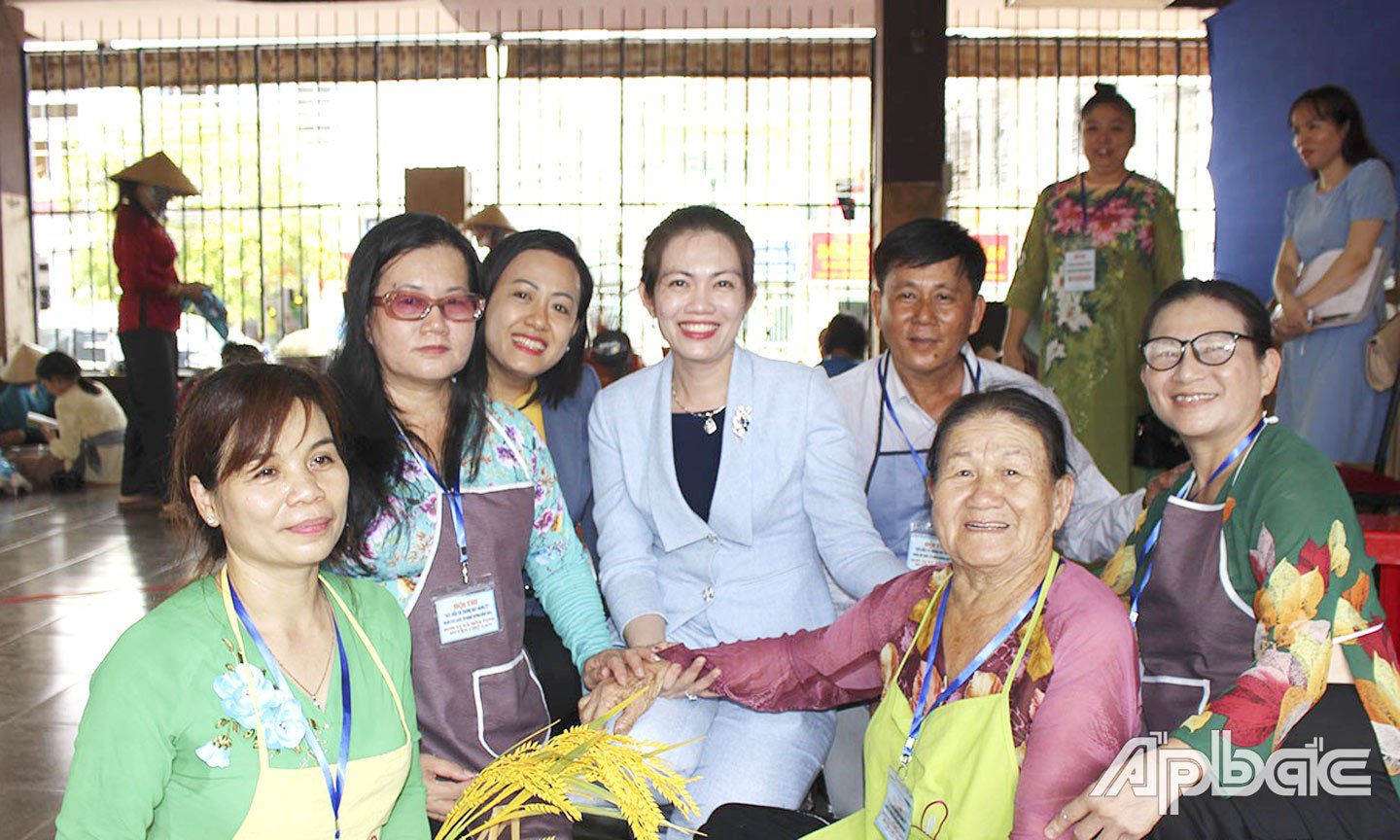 |
| Director of the Department of Culture, Sports and Tourism of Tien Giang province Nguyen Thi Uyen Trang met with the teams participating in the Banh It Wrapping and Displaying Contest within the framework of the Hung Kings' Commemoration Day in Tien Giang province in 2024. Photo: P. CONG |
That is the important element that fosters the patriotism of the Vietnamese people, which is the belief in common ancestors and origins. From that belief, that belief has tightened the spirit of community connection, the symbol of national unity, which cannot be separated by anything, contributing to building a prosperous family together, contributing to preserving the homeland and the country to become more and more beautiful.
Over time, the Hung Kings' death anniversary is not only a major event in the country but has also reached out to the world, bringing with it the pride of every Vietnamese person. Currently, according to statistics, there are 1,417 relics worshiping the Hung Kings and related to the Hung Kings' era throughout the country, from North to South, from the lowlands to the highlands. Originating from the Vietnamese concept of "wherever descendants are, there are ancestors", the Hung Kings' worship has spread extremely widely.
Accordingly, the annual Hung King Commemoration Ceremony is also a way to recreate the spirit of tradition, conveying the spiritual and cultural activities, characteristics of the Hung King worship, creating a strong attraction.
That attraction is not only in the number of people directly participating at the Hung Temple Historical Site (Phu Tho province) but also encourages the Vietnamese community to participate in the Hung Kings' Commemoration Ceremony held in other provinces and cities in the country and in many countries around the world where Vietnamese people live.
In Tien Giang, from 2011 to present, the province has decided to choose the location of the Provincial Museum as the place to place the altar of the Hung Kings, so that people in the province can conveniently offer incense to their ancestors, turn to the origin of the nation, to educate the tradition of patriotism, express deep gratitude to the Hung Kings, the ancestors who have contributed to building and defending the country.
Accordingly, the Hung Kings' death anniversary is maintained annually by Tien Giang province to honor traditional cultural values of the nation, express respect for the Hung Kings and ancestors who built the country; at the same time, educate the tradition of patriotism and the morality of "When drinking water, remember its source" for generations, especially the young generation.
Love for the country and pride in our roots are things that exist forever in the hearts of every Vietnamese person. Therefore, each generation of us together remembers our ancestors and turns to our homeland to remind each other of the responsibility to continue to inherit, preserve and promote the achievements of our ancestors that will last forever.
LIGHTHOUSE
Source: https://baoapbac.vn/van-hoa-nghe-thuat/202504/du-ai-di-nguoc-ve-xuoi-nho-ngay-gio-to-mung-muoi-thang-ba-1038572/


![[Photo] More than 17,000 candidates participate in the 2025 SPT Competency Assessment Test of Hanoi National University of Education](https://vphoto.vietnam.vn/thumb/1200x675/vietnam/resource/IMAGE/2025/5/17/e538d9a1636c407cbb211b314e6303fd)

![[Photo] Nearly 3,000 students moved by stories about soldiers](https://vphoto.vietnam.vn/thumb/1200x675/vietnam/resource/IMAGE/2025/5/17/21da57c8241e42438b423eaa37215e0e)
![[Photo] Readers line up to visit the photo exhibition and receive a special publication commemorating the 135th birthday of President Ho Chi Minh at Nhan Dan Newspaper](https://vphoto.vietnam.vn/thumb/1200x675/vietnam/resource/IMAGE/2025/5/17/85b3197fc6bd43e6a9ee4db15101005b)
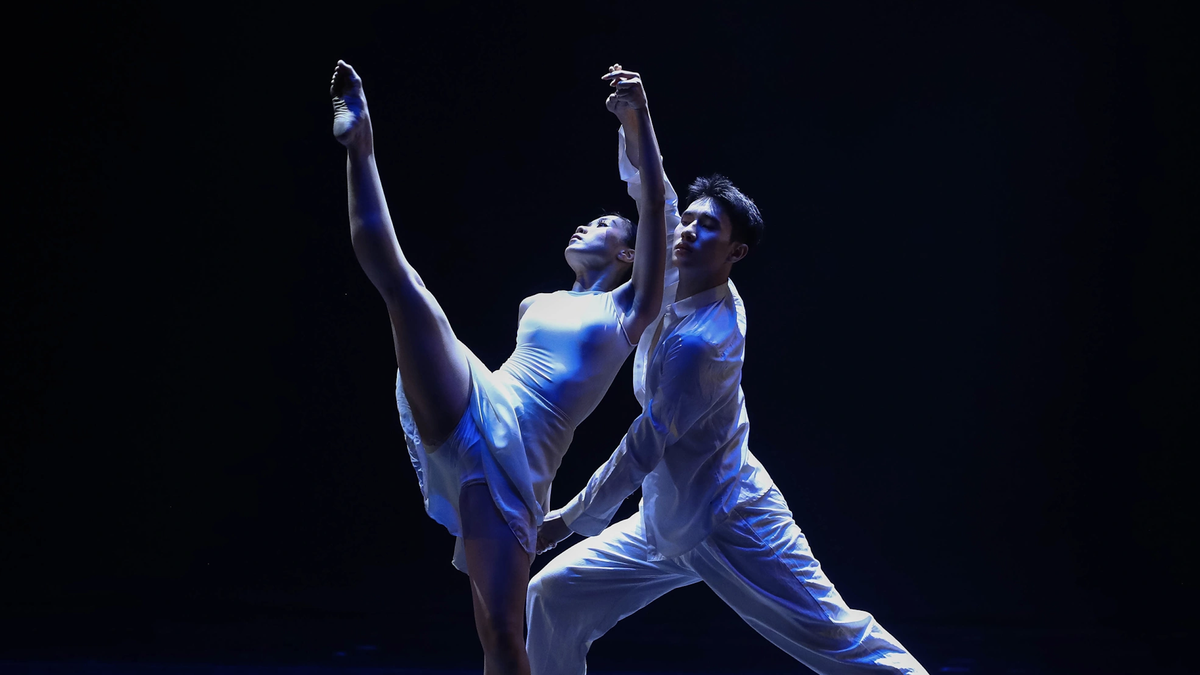
![[Photo] Prime Minister Pham Minh Chinh chairs meeting on science and technology development](https://vphoto.vietnam.vn/thumb/1200x675/vietnam/resource/IMAGE/2025/5/17/ae80dd74c384439789b12013c738a045)
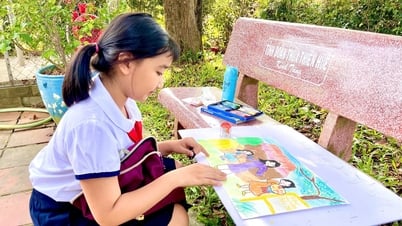

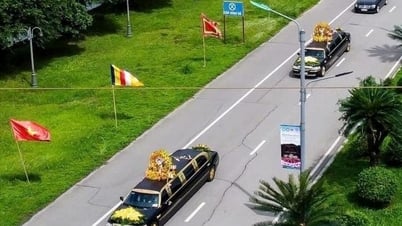

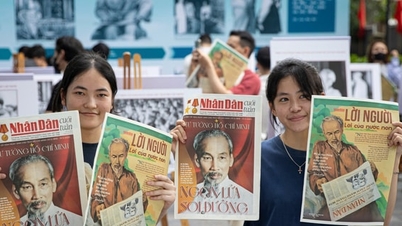


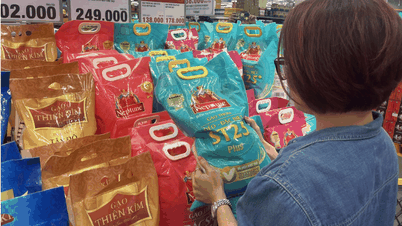






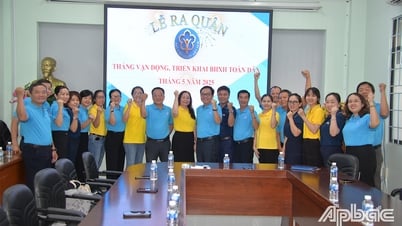
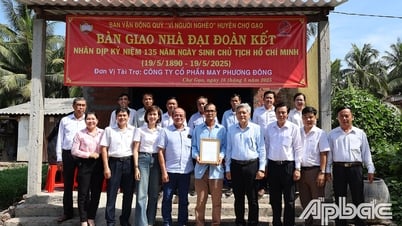
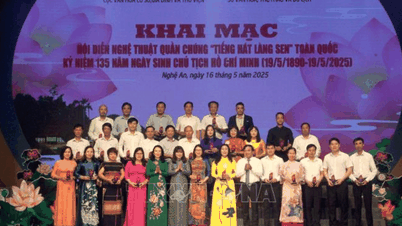

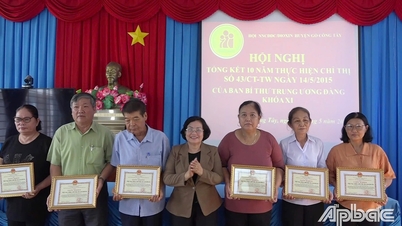
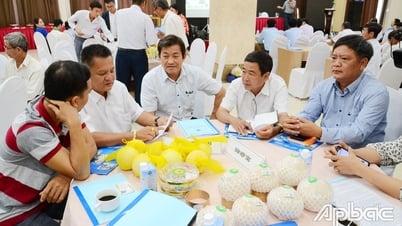




















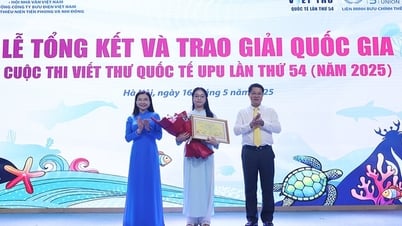

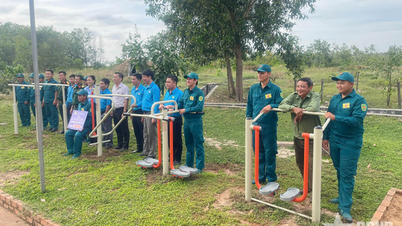














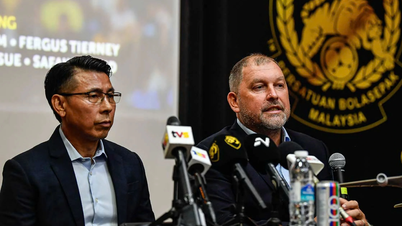
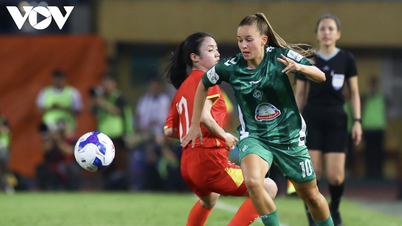

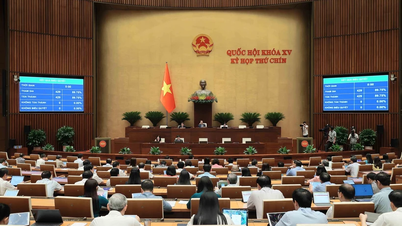









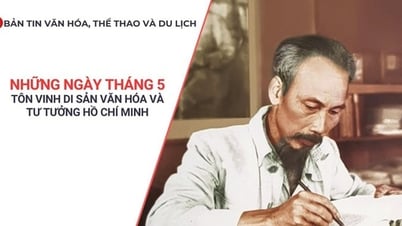
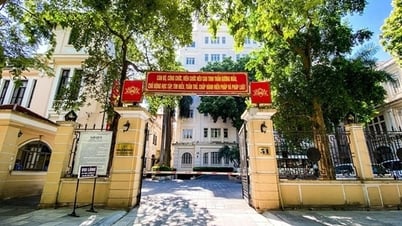
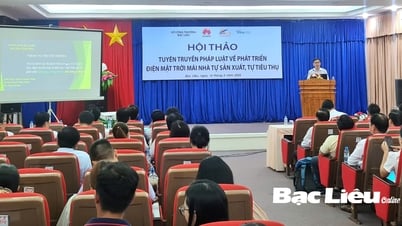
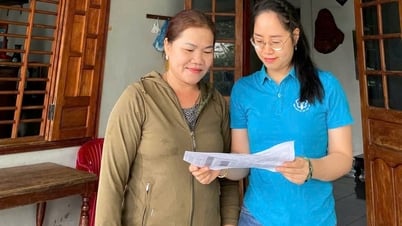
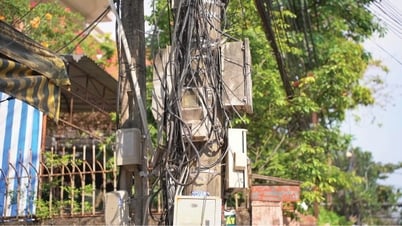


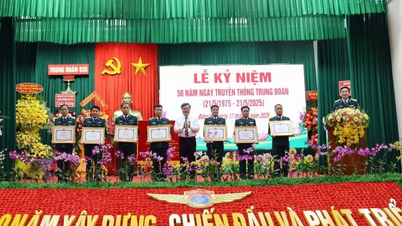












Comment (0)